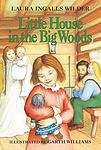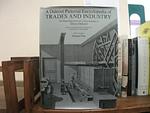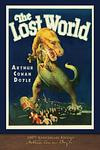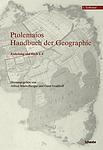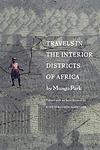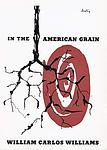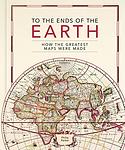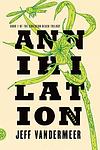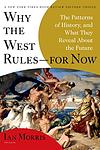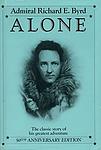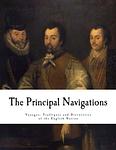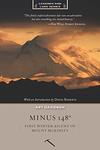The Greatest "Geography" Books of All Time
Click to learn how this list is calculated.
This list represents a comprehensive and trusted collection of the greatest books. Developed through a specialized algorithm, it brings together 284 'best of' book lists to form a definitive guide to the world's most acclaimed books. For those interested in how these books are chosen, additional details can be found on the rankings page.
Genres
Geography is a category of books that focuses on the study of the earth's physical features, including its landforms, climate, and natural resources. It also explores the ways in which humans interact with and shape the environment, including topics such as population growth, urbanization, and globalization. Geography books may cover a wide range of subjects, from maps and cartography to cultural geography and environmental science. Overall, the category of Geography offers readers a comprehensive understanding of the world around them and the complex relationships between people and their surroundings.
Countries
Date Range
Reading Statistics
Click the button below to see how many of these books you've read!
Download
If you're interested in downloading this list as a CSV file for use in a spreadsheet application, you can easily do so by clicking the button below. Please note that to ensure a manageable file size and faster download, the CSV will include details for only the first 500 books.
Download-
1. Heart of Darkness by Joseph Conrad
This classic novel follows the journey of a seaman who travels up the Congo River into the African interior to meet a mysterious ivory trader. Throughout his journey, he encounters the harsh realities of imperialism, the brutal treatment of native Africans, and the depths of human cruelty and madness. The protagonist's journey into the 'heart of darkness' serves as both a physical exploration of the African continent and a metaphorical exploration into the depths of human nature.
-
2. Voss by Patrick White
Set in 19th-century Australia, the novel follows a German explorer, Voss, as he leads a doomed expedition into the outback. Parallel to this, Voss develops a romantic relationship with Laura Trevelyan, a young woman he meets before his departure. Despite their physical separation, their spiritual and emotional connection deepens as Voss's journey becomes increasingly perilous. The narrative explores themes of obsession, the human condition, and the dichotomy between civilization and wilderness.
-
3. Little House In The Big Woods by Laura Ingalls Wilder
"Little House In The Big Woods" is a heartwarming story set in the late 1800s, following the life of a young girl named Laura and her family as they navigate the challenges and joys of living in the Wisconsin wilderness. Through vivid descriptions and engaging anecdotes, the book offers a glimpse into the daily routines, traditions, and adventures of pioneer life, highlighting the importance of family, resilience, and the simple pleasures found in nature.
-
4. Encyclopédie by Denis Diderot
This comprehensive work is a pioneering encyclopedia that aimed to present all the world's knowledge in a systematic and accessible way. It covers a wide range of topics including arts, sciences, crafts, professions, and technology. The book is also notable for its radical and enlightenment ideas, challenging traditional institutions and advocating for freedom of thought. It played a significant role in shaping the intellectual landscape of the 18th century and beyond.
-
5. Silk by Alessandro Baricco
"Silk" is a historical fiction novel that tells the story of a 19th-century French silkworm merchant who travels to Japan for business. During his travels, he becomes enamored with a mysterious woman. His unrequited love for her haunts him for the rest of his life, even as he returns to France and continues his life there. The novel explores themes of love, longing, and the profound impact that brief encounters can have on one's life.
-
6. Non Stop by Brian W. Aldiss
In this gripping science fiction novel, a group of humans living on a generational spaceship called the "Non-Stop" embark on a dangerous journey through a mysterious and ever-changing environment. As they navigate the treacherous landscape, they encounter strange creatures and uncover shocking secrets about their own existence. Filled with suspense and thought-provoking themes, the book explores the human instinct for survival and the limits of knowledge in an unfamiliar world.
-
7. The Lost World by Arthur Conan Doyle
"The Lost World" is an adventure novel that follows a group of explorers as they embark on a perilous journey to a remote plateau in South America, where prehistoric creatures still roam. Led by an eccentric professor, the team encounters dangerous dinosaurs, hostile tribes, and treacherous terrain, testing their courage and resilience. As they strive to survive and document their discoveries, the explorers face thrilling encounters and unexpected challenges that push them to their limits. This thrilling tale of exploration and survival is filled with suspense, action, and a sense of wonder as the characters navigate the mysteries of this lost world.
-
8. Geography by Ptolemy
"Geography" is a seminal work in the field of geography and cartography, written by a renowned ancient Greek scholar. The book provides comprehensive details about the world as known during the Roman Empire. It contains a wealth of information about various countries, cities, landmarks, and geographical features, along with instructions on how to create maps. The author also introduces the concept of longitude and latitude, making this work a significant contribution to the field of geography.
-
9. Taebaek Sanmaek by Jo Jung-rae
"Taebaek Sanmaek" is a historical novel set in South Korea during the turbulent period from the end of World War II to the aftermath of the Korean War. The narrative focuses on the ideological and political conflicts that divided the nation, including the struggle between the North and South, as well as the ideological battles among the leftists themselves. The story is a deep dive into the complexities of Korean history, culture, and socio-political dynamics, vividly portraying the human tragedies and triumphs during this period.
-
10. Travels in the Interior Districts of Africa by Mungo Park
"Travels in the Interior Districts of Africa" is a detailed account of the author's exploration into the heart of Africa at the end of the 18th century. The narrative provides an in-depth look at the geography, flora, fauna, and local cultures of the region at the time. The author, a Scottish explorer, recounts his journey along the Niger River, his encounters with different African tribes, his experiences of being captured and enslaved, and his eventual escape. The book offers a unique perspective on African society and the European perception of Africa during this period.
-
11. In the American Grain by William Carlos Williams
"In the American Grain" is a collection of essays that explores the history and culture of America through the lives of significant figures, such as Christopher Columbus, Abraham Lincoln, and Edgar Allan Poe. The author offers a unique perspective on these figures and events, challenging traditional narratives and interpretations. The book provides a deep analysis of American identity, emphasizing its complexity and diversity.
-
12. The Tyranny Of Distance by Geoffrey Blainey
"The Tyranny of Distance" explores the impact of geographical isolation on Australia's history, economy, and society. Blainey delves into how the vastness of the continent has shaped the country's development, from the challenges faced by early settlers to the struggles of maintaining connections with the rest of the world. Through a comprehensive analysis, the book highlights the unique circumstances and opportunities that arise from Australia's geographical position, ultimately offering a thought-provoking perspective on the nation's past and future.
-
13. Atlas by Gerardus Mercator
"Atlas" is a seminal work in the field of cartography, offering a collection of maps and scholarly texts that revolutionized the way the world was perceived in the 16th century. The author, a renowned geographer and cartographer, introduces an innovative projection system that allowed for more accurate representation of the spherical world on a flat surface. This work is not only significant for its geographical and cartographical contributions but also for its influence on the way subsequent generations viewed and navigated the world.
-
14. Annihilation by Jeff VanderMeer
In the novel, a team of four women—an anthropologist, a surveyor, a psychologist, and a biologist—embark on an expedition into Area X, a mysterious and remote region cut off from civilization. The area is known for its strange occurrences and the disappearance of previous expedition members. As the team delves deeper into the wild and enigmatic landscape, they encounter bizarre creatures, cryptic signs, and the remnants of a lost civilization. The biologist, serving as the narrator, documents their discoveries and her own personal transformations, driven by the unseen forces of Area X. The novel explores themes of nature, mutation, and the unknown, as the expedition's members confront the limits of knowledge and the consequences of seeking to uncover the inexplicable.
-
15. Water Music by T. C. Boyle
"Water Music" is a historical fiction novel that follows the adventures of two men, an explorer and a petty criminal, during the late 18th century. The narrative alternates between the perspectives of the explorer, who embarks on a quest to discover the source of the Niger River in Africa, and the criminal, who is trying to navigate the underbelly of London. The novel blends humor, rich historical detail, and adventure as it explores themes of ambition, survival, and the clash of cultures.
-
16. Collapse by Jared Diamond
"Collapse" is an exploration of why certain societies throughout history have thrived while others have deteriorated and collapsed. The book delves into environmental problems, climate change, rapid population growth, and unwise political decisions as factors that contribute to the downfall of a civilization. The author uses examples from history such as the Mayans, the Vikings in Greenland, and modern examples like Rwanda and Haiti, to illustrate his points. It serves as both a historical analysis and a warning for modern societies to learn from the past in order to avoid a similar fate.
-
17. Why the West Rules - For Now: The Patterns of History, and What They Reveal About the Future by Ian Morris
This book is a comprehensive exploration of the historical and cultural patterns that have led to Western dominance in the world. The author uses a broad range of evidence from archaeology, genetics, and linguistics to trace the development of East and West from prehistoric times to the present, arguing that physical geography, rather than culture, religion, or great men, is the primary driving force behind the rise of the West. The book also offers a forecast for the future, predicting a shift in global power from the West to the East.
-
18. The Exploration of the Colorado River by John Wesley Powell
This book is a firsthand account of the first U.S. government-sponsored passage through the Grand Canyon. The author, a one-armed Civil War veteran, and his team of nine men risked their lives to accomplish this feat in 1869. They faced dangerous rapids, food shortages, and potential attacks from Native American tribes. The narrative provides detailed descriptions of the geography, geology, and Native American inhabitants of the region, offering invaluable insights into the uncharted territory of the American West.
-
19. Gipsy Moth Circles the World by Francis Chichester
This book chronicles the author's solo sailing journey around the globe in his yacht, the Gipsy Moth IV. Battling harsh weather conditions, loneliness, and equipment failure, he successfully circumnavigates the world, starting and ending in England, and becoming the first person to do so by the clipper route, and the fastest circumnavigator, in nine months and one day overall. The book details his adventure and the challenges he faced, providing an intimate look at the world of sailing and exploration.
-
20. Alone by Richard Byrd
This book is a riveting account of the author's time spent alone in the Antarctic wilderness. He details his experiences of solitude, the harsh climate, and the physical and mental challenges he faced during his isolation. The narrative also provides a deep insight into his struggle for survival, his observations of the natural world, and his reflections on the human condition.
-
21. Journal of the Discovery of the Source of the Nile by John Hanning Speke
This book is a detailed account of an adventurous exploration to discover the source of the Nile River. The author, an English explorer, recounts his journey through Africa, detailing the various hardships, dangers, and cultural encounters experienced along the way. The narrative culminates in his discovery of Lake Victoria, which he claimed as the Nile's source. The book offers an intriguing look into 19th-century African exploration and the determination that led to one of the era's most significant geographical discoveries.
-
22. The Principal Navigations by Richard Hakluyt
"The Principal Navigations" is a comprehensive collection of English travel narratives from the 16th century, detailing a wide range of voyages and expeditions. The book includes accounts of journeys to the New World, Asia, and Africa, and features explorations by famous figures like Sir Francis Drake and Sir Walter Raleigh. The narratives provide a historical record of the era's discoveries, cultural encounters, and colonial endeavors, giving readers a unique insight into the period's maritime exploration and its impact on the world.
-
23. Cooper's Creek by Alan Moorehead
"Cooper's Creek" is a historical account of the 1860 Australian expedition led by Robert O'Hara Burke and William John Wills. The book details their ambitious journey to cross the Australian continent from south to north and back, a journey that resulted in the tragic deaths of both men. The author meticulously details the planning and execution of the expedition, the harsh realities of the Australian outback, and the complex personalities of the two men, while also providing a broader context of the era's fascination with exploration and scientific discovery.
-
24. Minus 148 by Art Davidson
"Minus 148" is a gripping account of a mountaineering team's harrowing winter ascent of Mount McKinley in Alaska. The team faces a brutal storm that traps them near the summit, forcing them to endure temperatures of -148 degrees Fahrenheit. Despite the dire conditions and tragic loss of life, the survivors demonstrate an incredible will to live, leading to one of the most remarkable rescues in mountaineering history. The book serves as a testament to the human spirit's resilience and the power of teamwork in the face of adversity.
-
25. Native American Folktales by Thomas A. Green
This book is a collection of traditional stories, myths, and legends from various Native American tribes. It explores the rich cultural heritage, beliefs, and customs of indigenous peoples through their oral storytelling tradition. The tales cover a wide range of themes including creation stories, tales of tricksters, moral lessons, and accounts of historical events. The book provides a unique insight into the spiritual and cultural life of Native Americans.
Reading Statistics
Click the button below to see how many of these books you've read!
Download
If you're interested in downloading this list as a CSV file for use in a spreadsheet application, you can easily do so by clicking the button below. Please note that to ensure a manageable file size and faster download, the CSV will include details for only the first 500 books.
Download

